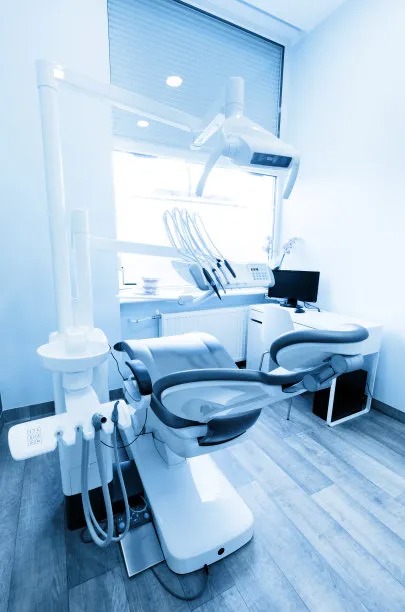Summary: Dental fillings are essential for maintaining optimal oral health, but there are critical precautions you must consider beforehand. This article outlines important steps to take before getting a dental filling, highlighting aspects such as choosing the right dentist, understanding the filling materials, preparing for the procedure, and post-operative care. By knowing these essential precautions, patients can ensure a smoother dental experience and promote better oral health in the long term. Understanding these facets can alleviate anxiety and lead to improved outcomes after dental procedures.
1. Choosing the Right Dentist for Your Filling

Finding a qualified dentist is paramount when it comes to dental fillings. Not all dentists have the same experience or expertise, so conducting thorough research is necessary. Look for a dentist who specializes in restorative dentistry, as they will possess the skills and training required for filling procedures.
In addition, consider reading online reviews and testimonials to gauge the experiences of other patients. Recommendations from family and friends can also lead you to trustworthy dental professionals, making it easier to trust their capability and approach.
Lastly, dont hesitate to schedule a consultation with your potential dentist before committing to the procedure. This meeting can help you assess their communication style and professionalism, ensuring you feel comfortable and secure in their care.
2. Understanding the Filling Materials Available
Before undergoing a filling procedure, it is crucial to understand the different materials available. Common filling materials include amalgam, composite resin, gold, and porcelain, each with its unique advantages and disadvantages. For example, amalgam fillings are durable and cost-effective but may not match the color of natural teeth.
On the other hand, composite resin fillings provide a more aesthetic solution as they can be color-matched to your teeth. However, their longevity may not be as great as amalgam. Knowing the differences between these materials can help you discuss options with your dentist and make a well-informed choice.
Inquire about the pros and cons of each filling type, including factors such as safety, longevity, and aesthetic appeal. Your dentist should guide you toward the most appropriate material based on your specific situation and oral health needs.
3. Preparing for Your Dental Filling Appointment
Preparation for your dental filling appointment can significantly impact the outcome of the procedure. Start off by ensuring you have a comprehensive understanding of what the filling process entails. Ask your dentist questions regarding the procedure to help reduce any anxiety you may experience.
Furthermore, it is advised to plan your appointment wisely by choosing a date when you can relax afterward. Arrange for someone to accompany you if you鈥檙e feeling particularly anxious or nervous. This support can help ease your mind and allow for a smoother experience.
Additionally, consider avoiding certain foods or drinks before your appointment. Staying away from sugary or caffeinated items can help reduce anxiety, and having a healthier diet leading up to the procedure may enhance your overall oral health.
4. Post-Operative Care and Follow-Up
After the dental filling procedure, its essential to follow the post-operative care instructions provided by your dentist. These guidelines may include dietary restrictions, such as avoiding hard or sticky foods for a limited period to allow the filling to set properly.
It鈥檚 also important to maintain optimal oral hygiene following the filling. Brushing and flossing should be done gently around the filling site to prevent any sensitivity or discomfort. Monitoring the feeling of the filling in the days following the procedure is encouraged鈥攔eport any unusual sensations to your dentist immediately.
Lastly, scheduling a follow-up appointment is crucial to ensure that the filling is holding up well and that there are no additional complications. Consistent dental check-ups will help maintain your overall oral health and prevent future issues related to decay.
Summary:
In conclusion, understanding essential precautions before getting a dental filling is vital for ensuring your optimal oral health. From choosing the right dentist to being informed about filling materials, proper preparation, and post-operative care are all significant components of a successful dental experience. Taking the time to consider these aspects can lead to better outcomes and a more manageable procedure.
This article is compiled by Vickong Dental and the content is for reference only.
Vickong Dental
Vickong Dental is a large medical group established in Hong Kong in 2008 by professors from well-known medical universities in Guangdong and Hong Kong, as well as medical doctors from key national '985' universities (including Master's supervisors and senior professors). The chain of branches brings together expert dentists with PhDs and Master's degrees from Hong Kong and Mainland China, committed to providing high-quality dental treatment.
"Vickong Dental Practices the University Motto of 'Healing and Serving Society,' with a Stable Operation for Sixteen Years. It Has Been honored with Hong Kong Enterprise Leaders's Choice,' and is a Global Trusted Implant Center for the Nobel Implant System. Recommended by Hong Kong Metro Broadcast and Guangdong Television, it Serves Customers from Over Thirty Countries and Regions, Gaining the Trust and Favor of Citizens from the Guangdong-Hong Kong-Macau Greater Bay Area and Surrounding Cities.

Thousands of customers' unanimous praise
The most recognized and highly recommended dental service by customers in the Guangdong-Hong Kong-Macau Greater Bay Area
We Ensure You Receive Detailed Care and Attention Here
Hong Kong standards, Shenzhen prices, Your Trusted English-speaking dentists

Vickong Dental Medical-Grade Instrument Disinfection Process
Vickong Dental Medical-Grade Instrument Disinfection Process

Vickong Dental Chain: A Warm and Comfortable Environment for Treatment






Appointment Hours

Q&A
Why choose Vickong Dental?
Vickong Dental practices the university motto 「Medicine to Benefit Society」, with each branch bringing together highly qualified dentists with doctoral and master’s degrees from Hong Kong and the Mainland, and has maintained seventeen years of steady operation。Recipient of 「2024 Hong Kong Enterprise Leaders Brand」, 「2025 Hong Kong Enterprise Leaders Brand」, a Nobel Biocare Global Trusted Implant Center, and a brand recommended by Metro Radio Hong Kong and Guangdong TV。
To date, we have served customers from more than thirty countries and regions,earning exceptionally high word-of-mouth recognition and trusted recommendations from residents across the Guangdong-Hong Kong-Macao Greater Bay Area and surrounding cities
We have eight major branches in Zhuhai、Shenzhen,and a consultation and service assurance center in Hong Kong,so you can book a free consultation at any time for any questions,which is very reassuring.
If I do not accept the quotation after the CT scan, will I be charged??
No! As long as the actual treatment has not started, you will not be charged any fees.
Will there be any additional charges during the treatment process?
No, there won’t be any additional charges. Before treatment begins, we will clearly explain the treatment plan and its corresponding fees. Only after the patient agrees and signs the consent form will we proceed with the dental service.
Can I pay in Hong Kong dollars?
Yes. Vickong Dental accepts payment in Hong Kong dollars. The amount will be converted based on the exchange rate of the day, and the applicable rate will be clearly communicated to you in advance.
Can I reschedule my appointment at any time?
Yes. Please contact us via **WeChat** or **WhatsApp** as early as possible, providing your original appointment time and details, along with your preferred new date and time slot for rescheduling.













